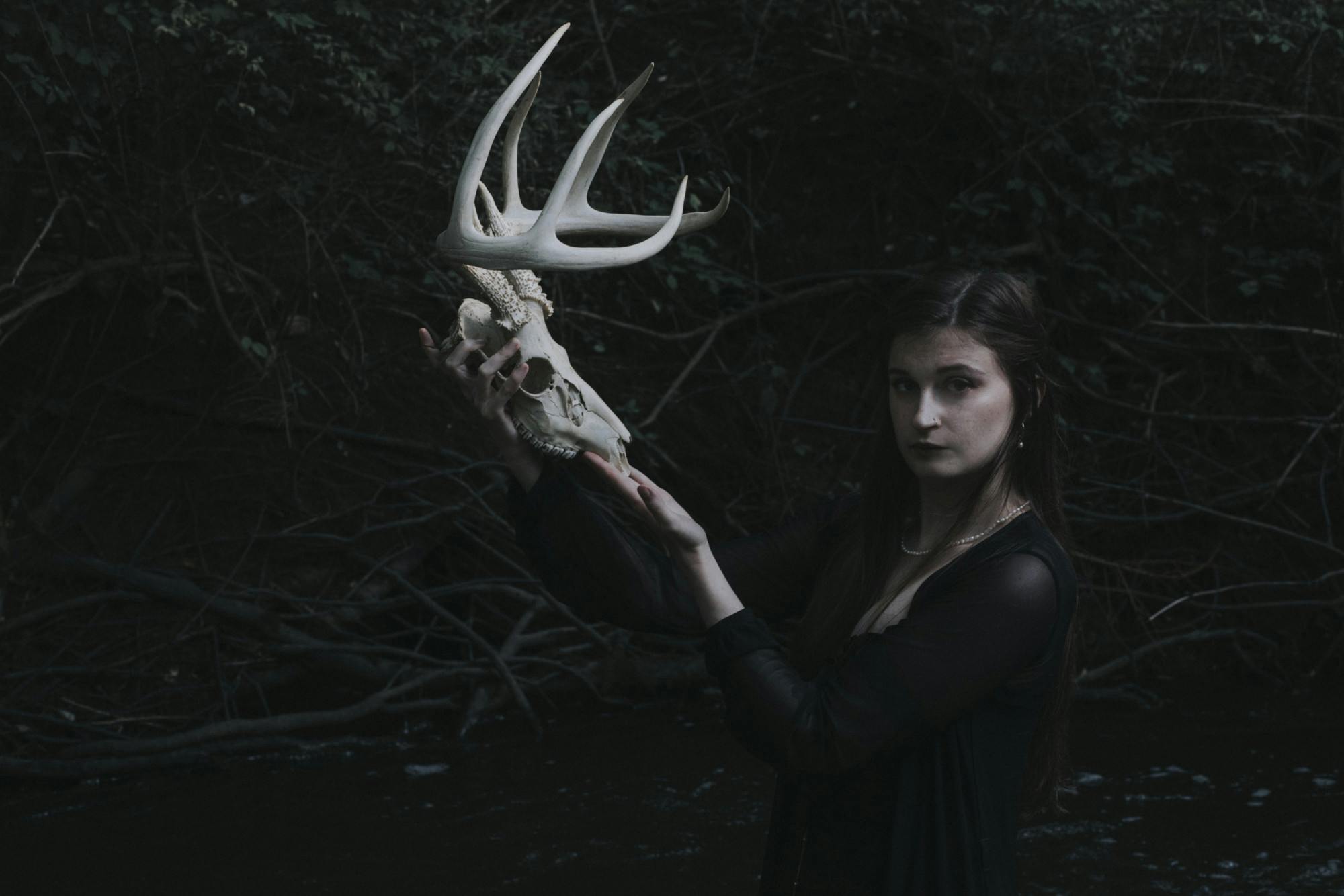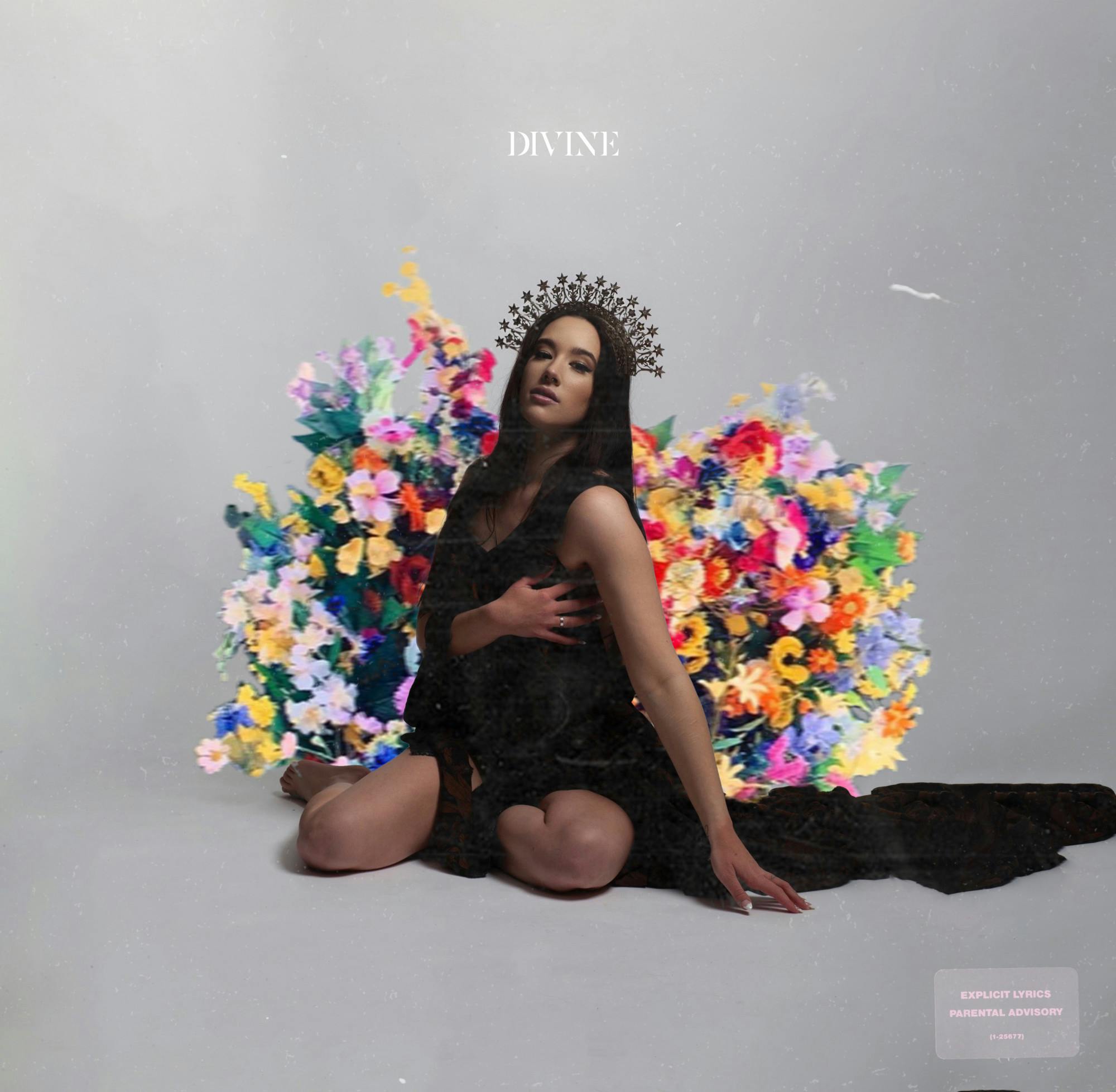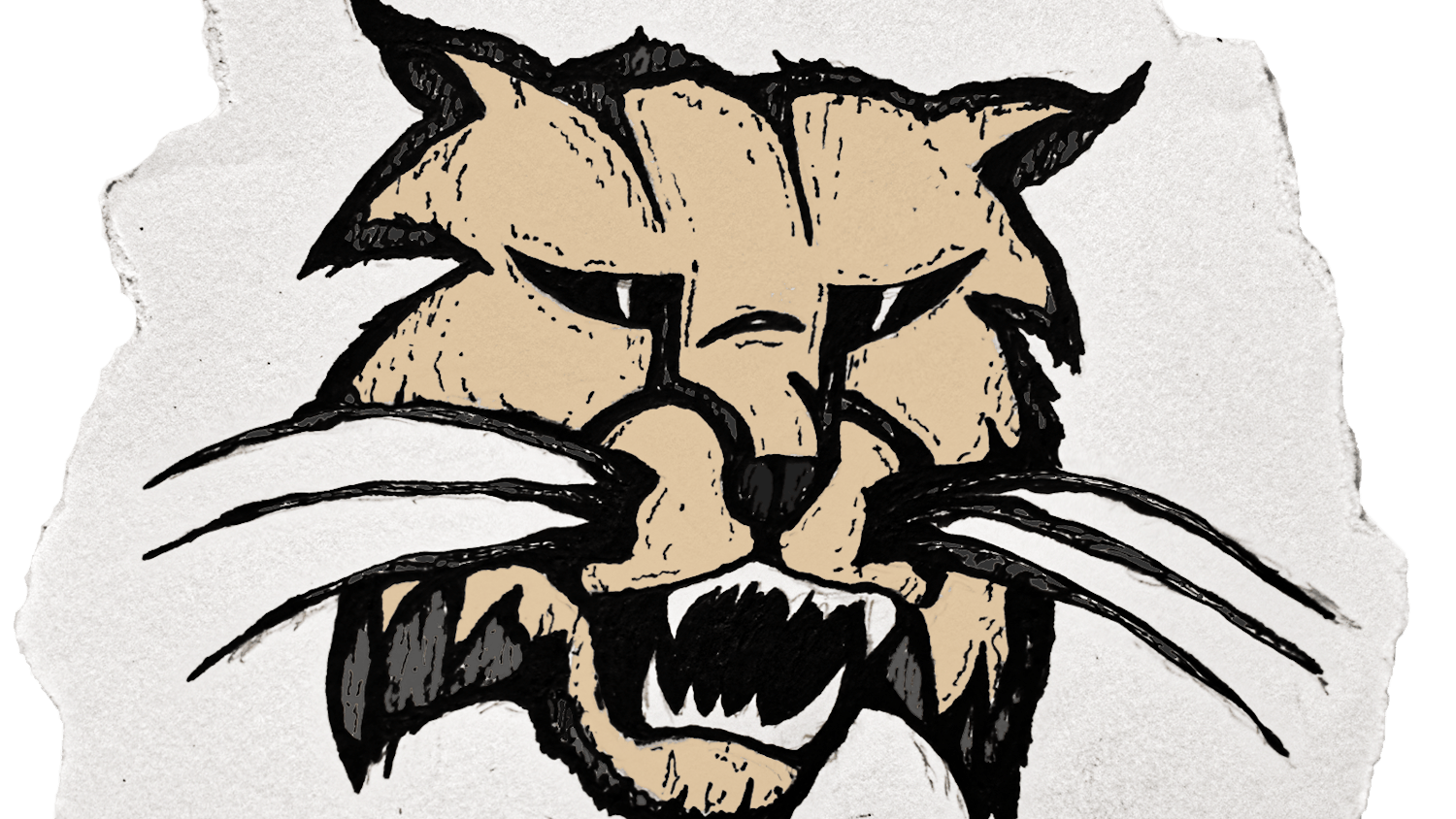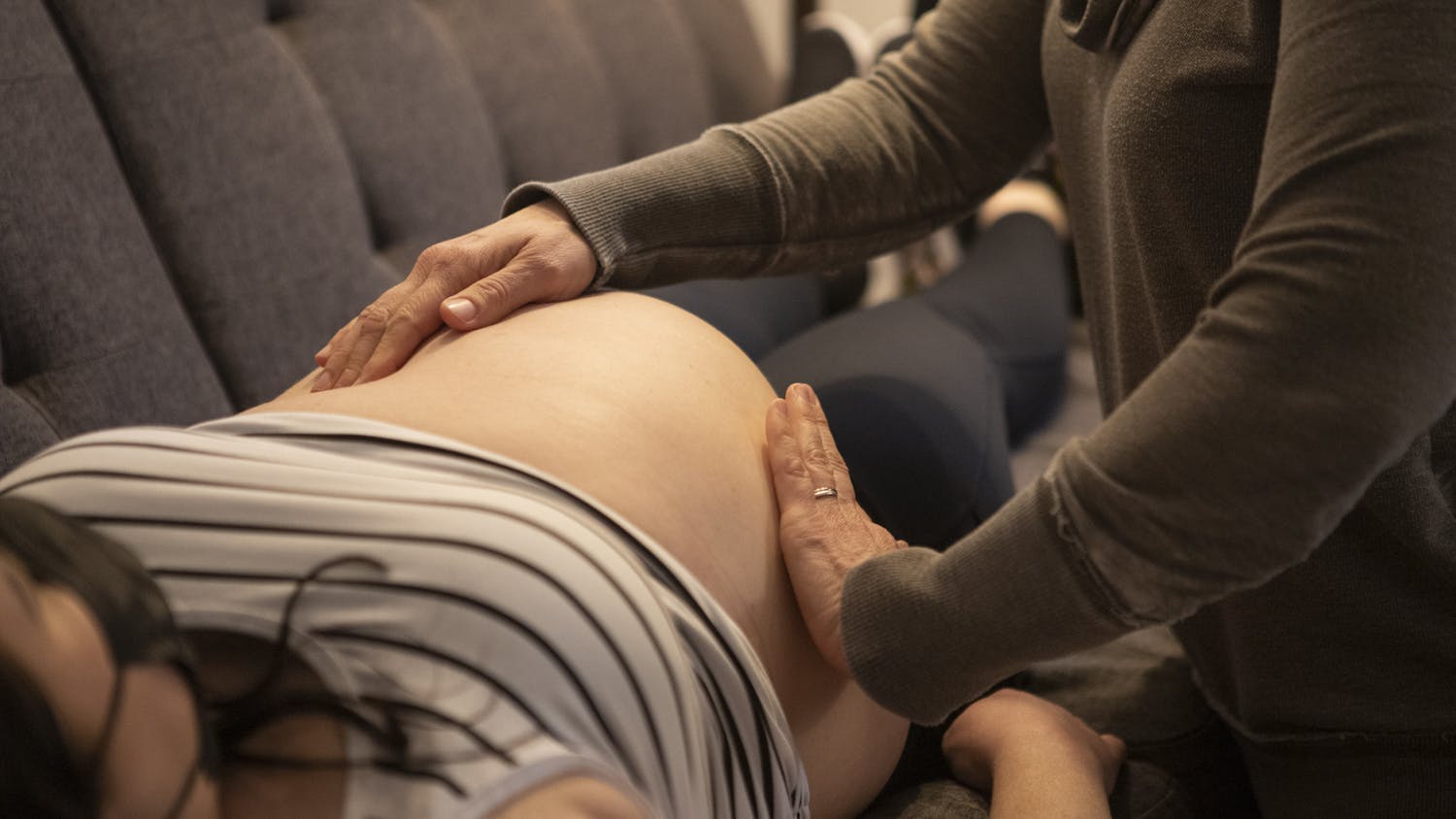Once she stepped into the dark room of her college, Ashley Kouri knew what she wanted. The old-school glamor of the chamber and the process of developing photos enchanted her. The witchy vibe of handling potions and mixing tinctures together empowered her to step into the male-dominated sphere of photography.
“My goal is to be that safe spot for people to go to, … as opposed to some guy with a camera that’s trying to just get girls naked,” Kouri said.
The subject of photography makes the 25-year-old student light up. After high school, she went to University of Akron near her home of Cleveland and got her Bachelor of Fine Arts in photography. Currently, she is pursuing her Master of Fine Arts in photography and integrated media at Ohio University.
From early childhood on, she said she would describe herself as dorky. Kouri went to a Catholic school with strict rules, one where she said she had to wear a uniform and would get in trouble for dying her hair. Tired of norms and restrictions, she said she reclaimed her power by getting tattooed and pierced the second she turned 18.
“I wanted to start becoming the person that I wanted to look like,” Kouri said.
The person Kouri wanted to be, has her ears, nose and lips pierced, as well as a tattoo under her chin and three dots on each side of her outer eye corner. Kouri said her body decoration helps her to feel powerful.
Everything about Kouri is a bit eerie and resembles fall. Her arms are decorated with black tattoos: ghosts next to a skull accompanied by a bat and flowers. Kouri loves Halloween, which is her busiest time as a freelance photographer since she specializes in a gothic, black-and-white, uncanny retro look. Even her coffee order is autumnal–she said she likes pumpkin spice lattes, despite previously working as a barista and the cutesy stigma attached to the drink.
In the same way that making coffee is about crafting and mixing the right ingredients together, Kouri also treats photography as an artisanry, taking most of her photos on film.
“I like to make things hard on myself,” Kouri said. “There’s such magic in being really hands-on with the process. I feel like a spooky witch with my potions almost.”

Choosing film is not just about aesthetics but about stripping oneself of the possibility to heavily edit photos and chime in dominant beauty standards. For Kouri, analog photography shows real beauty and adds a certain rawness. Black and white photography symbolizes the very pared-down essence of what humans are.
“You can’t get away from it like you can with digital photography: cleaning your face, and like the Kardashians, taking away a muscle,” Kouri said.
Kouri said she wishes to conquer this power hierarchy by empowering her clients. That includes taking time before stepping in front of the camera and setting up safe surroundings but also breaking habits and the way one views the world.
“I probably won’t ever go to another photographer because she’s just so good,” said Lindsay Mesenburg, one of Kouri’s models, a musician and a close friend of Kouri’s.
Kouri and Mesenburg often collaborate on covers for Mesenburg’s music. The two women have known each other since grade school and met through a mutual friend. Mesenburg remembers that Kouri was always into photography and even had a good eye for taking pictures before going to arts school.
“I feel so comfortable around her, the way that she does things,” Mesenburg said. “If you’re feeling insecure or uncomfortable, she’s very good at trying to make you feel more comfortable and feel more beautiful.”
Mesenburg said Kouri’s photography is poetic and it is feminist. She often uses sepia tones or black and white, as can be seen in her current exhibition at The Dairy Barn Arts Center. For Mesenburg she breaks up her statement scheme. On the single cover of “Divine,” Mesenburg is sitting down, draped in a dark fabric, wearing a crown-like headpiece. The background is simple and gray while Mesenburg is surrounded by colorful flowers. The idea with the fabric evolved during the shoot, said Mesenburg, who felt powerful in the pose.

“I’ve had pictures taken by men before and it is very different,” Mesenburg said. “When men photograph you it’s very to the point. They don’t care about your comfort level.”
The friendship between Mesenburg and Kouri sparks from creativity and is fueled by their differences. While Mesenburg describes herself as dainty, she says Kouri is just cool.
“When you see her, you automatically think ‘oh this person’s like hardcore and stuff,’ but she’s the sweetest person ever,” Mesenburg said about Kouri.
During 2019, both women lived together for a short time and Mesenburg recalls the contrast between their rooms, her own room looking rather bright, with open windows, boho-themed and macramé. Kouri’s room was dark and reflected her witchy and mysterious personality with photographs all over the walls and books on photography everywhere.
Reading about photography and learning more about feminism and power relations is important to Kouri because whoever is controlling the camera, in the end, is controlling the gaze. The camera historically has been directed by men, which creates a struggle for Kouri to ensure she’s not falling into the popular trap.
“The camera itself is naturally going to be this gaze, right?” Kouri said.
The theory of the male gaze was coined by the feminist film critic Laura Mulvey in her essay “Visual Pleasure and Narrative Cinema” in 1975 and describes the act of depicting women and the world through as masculine, cisgendered, heterosexual view. The male gaze turns women into a sexual object to be looked at by male voyeur, or as Margaret Atwood famously phrased it: “You are a woman with a man inside watching a woman. You are your own voyeur.”
The male gaze is something Kouri constantly is challenging. For her, it is necessary to get a feeling of what it is like in front of the lens in opposition to just staying behind it, to be more empathetic.
“Another way I’m contradicting the male gaze is turning the camera on myself,” she said. “The models are not alone in that and I understand their position.”
For Kouri, she said taking pictures is more than pushing the shutter release button.
“It’s (about) stepping away from my own gaze as a photographer and knowing what the art technically is about and then working in collaboration with the vision of everyone else,” Kouri said.
She often sprinkles questions like that in her answers—doubting oneself and a dash of imposter syndrome seem to be an essential quality for her as an artist.
Kouri is not afraid of making herself vulnerable and admitting her weaknesses and challenges. In art school, she was told that being unique doesn’t exist because everything has been done before.
“You’re just a part of the conversation,” she said.
She said she cares more about taking photos and concocting her potions, anyways.






